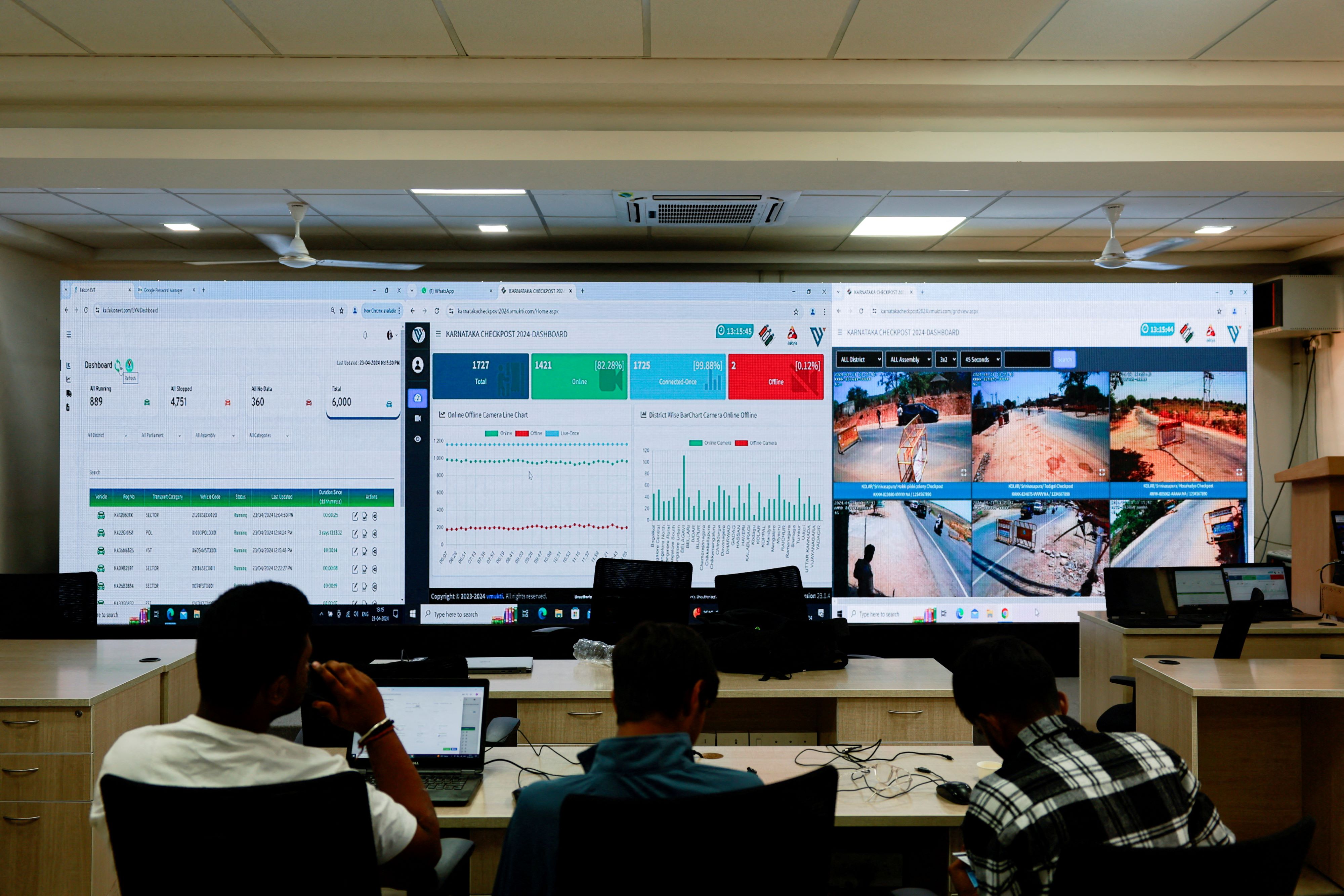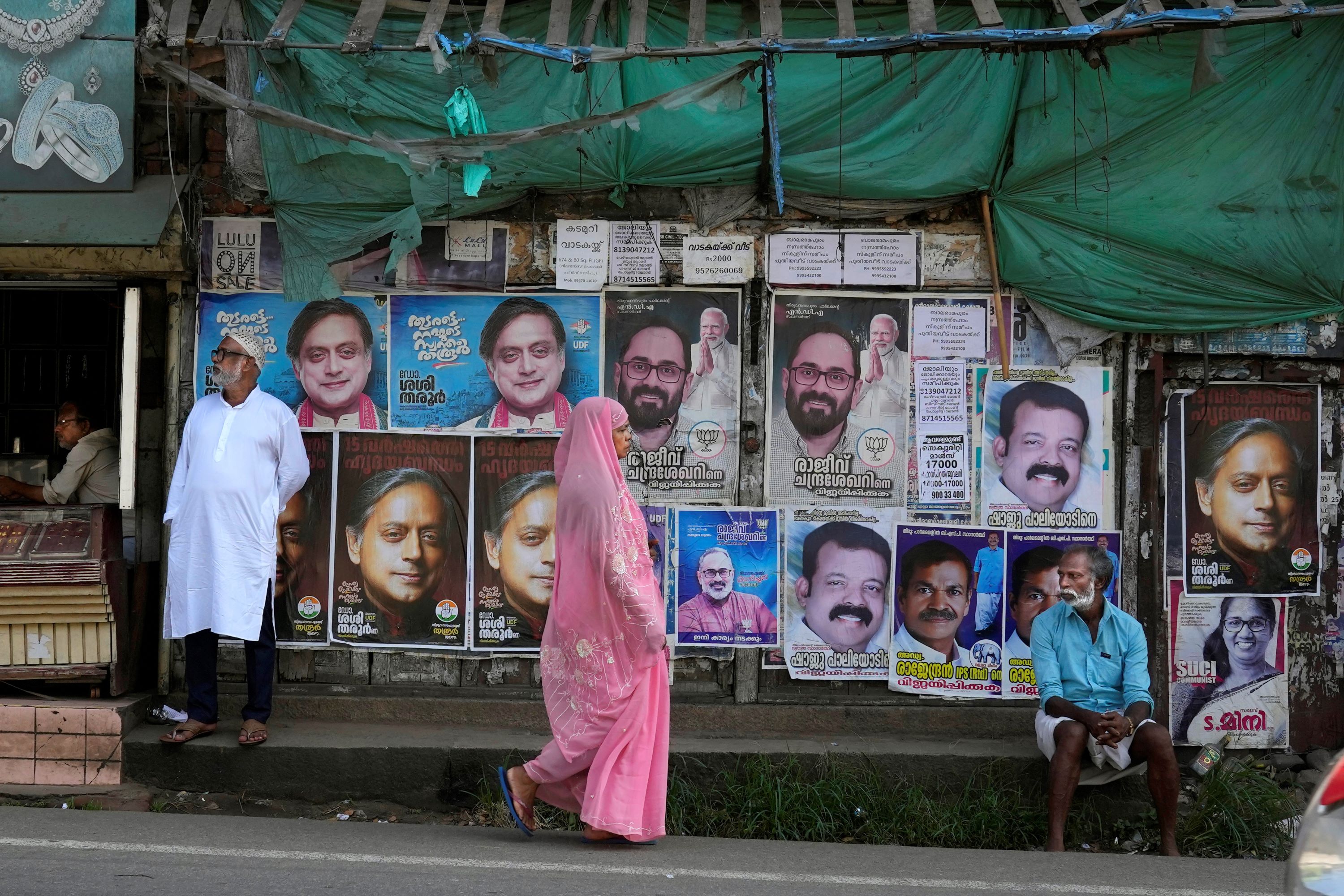
BENGALURU/LUCKNOW - Indian forest service official Surya Sen usually manages a city zoo, but during the world's largest general elections, he has a very different task - rooting out online misinformation to prevent any disturbances.
As nearly a billion voters head to the polls in a mammoth six-week program that began on April 19, officials like Sen counter rapidly spreading online misinformation from election cells that also monitor television and public camera images.
"Social media is the primary ground for misinformation," said Sen, whose team monitors social media from an office in India's Silicon Valley city of Bengaluru that goes to the polls on Friday.
Sen works with an external agency, where 30 people use keyword tracking software and monitor high-profile influencers round the clock. His operation is one of hundreds of such cells nationwide that coordinate with India's election commission.
Just last week, two AI-generated deepfake videos of Bollywood stars criticizing Prime Minister Narendra Modi, who is seeking a rare third term, and asking people to vote for the opposition Congress went viral, drawing half a million views
At the same time, Sen's in-house team of 40 sifts online posts by political parties to detect everything from hate speech to fake news that violates polling rules.
READ MORE: Deepfakes of Bollywood stars spark worries of AI meddling in India election
It is a high-stakes job.
Just last week, two AI-generated deepfake videos of Bollywood stars criticizing Prime Minister Narendra Modi, who is seeking a rare third term, and asking people to vote for the opposition Congress went viral, drawing half a million views.
Many were deleted but some are still online, despite two police investigations in the financial capital of Mumbai.
In a statement, the Election Commission said its officials across India had received "instructions to be pro-active in scotching fake news on social media".
ALSO READ: India to rerun election at 11 places in Manipur after violence
Sen showed Reuters his messaging app WhatsApp, which buzzed constantly with alerts from the external agency flagging content that could disrupt public order or violate election rules, such as use of hate speech.

They were among results thrown up by online searches for terms such as "Modi" and "democracy".
Sen did not identify the external agency, which also tracks posts from a private list of social media influencers with numerous followers, giving them an increasingly louder voice in shaping the public narrative in India.
"We cannot do this job ourselves," Sen said, explaining why the work had to be outsourced. "We do not have the expertise and resources ... (It) is a very, very difficult job."
Since the last general elections in 2019, the number of internet users in India has swelled 43 percent to about 820 million, fed by the growing use of smartphones and Facebook, WhatsApp and X
Suspect posts are flagged to senior election officials for further action, such as directives to Facebook or X to remove content, or legal action against the posters.
READ MORE: Elaborate arrangements, security in place for first phase of India's general elections
Sen added that 36 such cases have so far been registered in Karnataka, the southern state that is home to Bengaluru.
Since the last general elections in 2019, the number of internet users in India has swelled 43 percent to about 820 million, fed by the growing use of smartphones and Facebook, WhatsApp and X.
In a similar office in northern Uttar Pradesh, India's most populous state with 240 million people, Reuters encountered just two people working on laptops amid rusting metal racks, tracking online posts by repeatedly refreshing pages.
ALSO READ: India's ruling BJP releases election manifesto titled 'Modi's Guarantee'
The team manually reviewed all posts on X that tagged the state election panel's account, ran keyword searches every 20 minutes and used tools such as Google image search to run authenticity checks before flagging controversial content.
"We were not given any formal training or any specialized software," said one of the invigilators, Harsh Vardhan Singh. "We keep an eye on every post."


